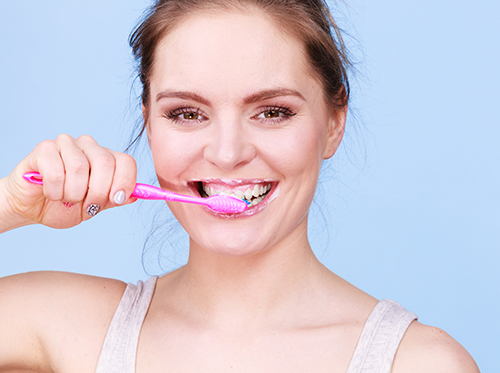
Coffee. Blueberries. Red wine. Tomato sauce. They might please our palate, but they are notorious for staining our teeth. Luckily, nature has balanced the scales for us! Here are just some of the foods that could actually help whiten your smile.
Apples
The crunchy texture of an apple makes it perfect for scrubbing your teeth as you chew. The more you chew, the more saliva you produce. And saliva helps lower the amount of the bacteria in our mouths that cause decay, while washing away food particles that can stain our teeth.
Broccoli
Raw broccoli florets look—and act—like tiny toothbrushes. Broccoli also contains high levels of iron which help protect our enamel from stains and erosion.
Carrots and Celery
More crunchy vegetables that scrub teeth. These are high in fiber, which acts as a gentle abrasive, and water, which stimulates healthy saliva production.
Nuts and Seeds
These are nutritious snacks that both act as abrasives and increase saliva production.
Pineapple
Pineapple is that rare fruit that produces bromelain, enzymes that help in digestion. These enzymes are also believed to help remove staining.
Strawberries
Malic acid considered by many to be a natural whitener which helps break down stains, and strawberries are a great source for this organic compound. But don’t overdo, because too much acid is hard on your enamel.
Of course, the real benefit of eating a balanced diet containing fresh fruits, vegetables, nuts, and seeds is nutritional, and any whitening that takes place is an added bonus. And eating healthy foods won’t take the place of brushing to keep your teeth clean and bright, especially if you are relying on sugary fruits for their whitening effect. If you want help whitening your smile, and diet and brushing alone aren’t the answer, give our Appleton, WI office a call and we’ll be happy to suggest other options. Until then, bon appétit!





 Website Powered by Sesame 24-7™
Website Powered by Sesame 24-7™